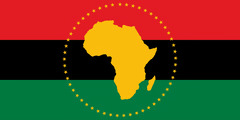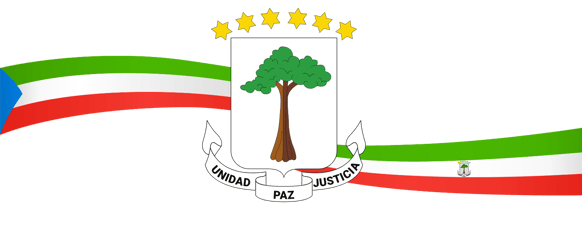The West Causes, Enables, and Funds the Underdevelopment of the Gulf of Guinea: The Complete Truth
The Gulf of Guinea, a region of strategic importance both geographically and economically, is often presented as an area of untapped potential, a key point for maritime trade, and a crucial source of natural resources. However, behind the rhetoric of international cooperation and sustainable development lies a disturbing reality: Western powers have played a central role in perpetuating the underdevelopment of this region. This article delves into how the West causes, enables, and funds the underdevelopment of the Gulf of Guinea, treating the region as a geopolitical chessboard where strategic and economic interests are prioritized while the real needs of local countries and populations are ignored.
The United States of Africa
2/3/20254 min read


The West Causes, Enables, and Funds the Underdevelopment of the Gulf of Guinea: The Complete Truth
By J.C. Engonga™
The Gulf of Guinea, a region of strategic importance both geographically and economically, is often presented as an area of untapped potential, a key point for maritime trade, and a crucial source of natural resources. However, behind the rhetoric of international cooperation and sustainable development lies a disturbing reality: Western powers have played a central role in perpetuating the underdevelopment of this region.
This article delves into how the West causes, enables, and funds the underdevelopment of the Gulf of Guinea, treating the region as a geopolitical chessboard where strategic and economic interests are prioritized while the real needs of local countries and populations are ignored.
1. The Gulf of Guinea: A Key Region with Wasted Potential
The Gulf of Guinea encompasses 17 countries in West and Central Africa, connecting the continent to the rest of the world via vital maritime routes. The region holds 10% of the world's oil reserves, along with significant deposits of gas, minerals, and fisheries. So why, despite its wealth, does this region continue to face high levels of poverty, insecurity, and environmental degradation?
1.1. Abundant Resources, Poorly Managed
Western engagement with the Gulf of Guinea has been predominantly extractive, focusing on exploiting oil, gas, and other raw materials without ensuring fair distribution of the benefits. Western multinationals, backed by their governments, dominate operations in the region, leaving host countries with minimal revenues and destructive economic dependencies.
1.2. The Region’s Strategic Importance
Beyond its resources, the Gulf of Guinea is a critical transportation hub connecting Africa with Europe and the Americas. This has turned the region into a battleground for major powers, including the United States, China, and Russia, vying for control over these routes and associated resources.
2. The Role of the West in the Gulf of Guinea’s Underdevelopment
2.1. Neo-Colonialism: An Unequal Relationship
The colonial legacy of Western powers remains deeply entrenched in the Gulf of Guinea’s economic and political relationships. France, the United Kingdom, and the United States continue to influence strategic decisions, often prioritizing Western interests over local development.
France: Through its control over Francophone countries in the region, France has maintained a system of economic and political dependency that stifles independent growth.
United Kingdom: Multinationals like Shell and BP operate in the region, generating massive profits while contributing minimally to local communities' welfare.
United States: In its bid to counter China and Russia, the U.S. employs conditional aid and military alliances that perpetuate insecurity and instability.
2.2. Financing Corruption and Plunder
The West not only ignores the corrupt systems operating in the region but also indirectly funds them. Multinationals pay bribes, manipulate regulations, and exploit the lack of oversight in the natural resource sector.
Oil resources in countries like Nigeria and others are managed with opacity, with revenues diverted to private accounts while local communities live in poverty.
Corrupt governments are sustained with the backing of Western powers, which see them as strategic allies.
2.3. The Militarization of the Region
Western military presence, under the guise of combating piracy and ensuring maritime security, has heightened tensions in the Gulf of Guinea. Rather than resolving issues, these initiatives exacerbate instability by prioritizing foreign powers’ strategic interests over regional cooperation.
3. Consequences of the Western Model in the Gulf of Guinea
3.1. Extreme Poverty and Underdevelopment
Despite the revenues generated from natural resources, local communities see little benefit. Poverty and unemployment rates in the region remain alarmingly high.
3.2. Environmental Devastation
The exploitation of oil and gas has caused massive spills and pollution, affecting biodiversity and the livelihoods of populations dependent on fishing and agriculture.
3.3. Security Crisis
The militarization of the Gulf of Guinea has led to increased piracy, conflicts among local communities, and greater dependency on foreign aid to resolve internal issues.
4. Alternatives to the Western Model
To break the cycle of dependency and underdevelopment, countries in the Gulf of Guinea must adopt strategies that prioritize sustainable development and regional cooperation.
4.1. Strengthening Local Institutions
Implement transparent regulatory frameworks to ensure equitable redistribution of natural resource revenues.
Fight corruption through local and regional initiatives rather than relying on external actors.
4.2. Promoting Regional Cooperation
Strengthen organizations like the Gulf of Guinea Commission and the African Union to coordinate policies benefiting member states.
Reduce reliance on foreign powers through intra-regional trade and economic diversification.
4.3. Environmental Sustainability
Strictly regulate extractive activities to minimize environmental impact.
Invest in renewable energy and the blue economy as alternatives to oil and gas dependency.
5. A Call to Action
The Gulf of Guinea has the potential to be a driver of development for all of Africa. However, this will only be possible if the region’s countries break away from the dynamics imposed by the West and take control of their own destinies.
Far from being an ally in development, the West has been a force perpetuating plunder, corruption, and underdevelopment. It is time for African leaders, with the support of their people, to build an alternative model prioritizing justice, sustainability, and collective well-being.
The Gulf of Guinea can be a region of shared prosperity, but only if control returns to those who truly have the right to it: its people.


